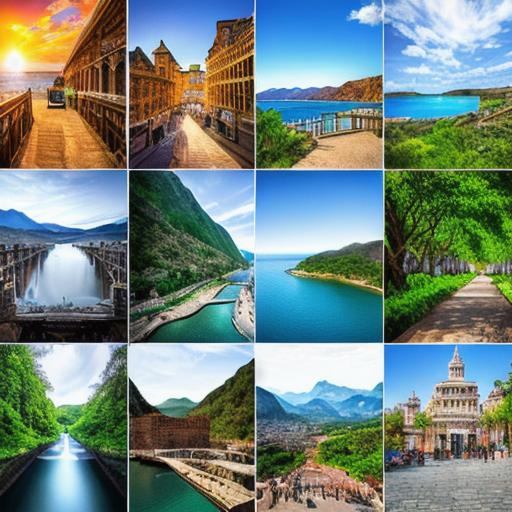As a web developer, you know how important it is to have a strong online presence for your clients’ businesses. But what about the tourism industry? This industry requires a unique set of marketing strategies that can attract visitors and keep them coming back. In this article, we will explore some of the most effective marketing services in the tourism industry and how you can use them to grow your clients’ businesses.
1. Social Media Marketing
Social media has become an essential tool for promoting tourist destinations and attractions. With platforms like Facebook, Instagram, and Twitter, you can reach millions of potential customers and showcase the beauty of your client’s location. Use high-quality images, videos, and posts to engage with your audience and encourage them to visit your client’s business.
2. Influencer Marketing
Influencers have a significant impact on social media and can help promote your client’s business to their followers. Look for influencers who are relevant to the tourism industry and reach out to them to collaborate on promotional campaigns. This could include sponsored posts, reviews, or giveaways.
3. Email Marketing
Email marketing is a powerful tool for reaching potential customers directly. Create targeted email campaigns that highlight your client’s unique selling points and offer exclusive discounts or promotions to encourage bookings.
4. Content Marketing
Content marketing involves creating valuable, informative content that provides value to your clients’ audience. This could include blog posts, videos, infographics, or podcasts. Share this content on social media and through email marketing to drive traffic to your client’s website.
5. Search Engine Optimization (SEO)
SEO is essential for attracting potential customers who are actively searching for tourist destinations and attractions. Optimize your client’s website for search engines by using relevant keywords, creating quality backlinks, and regularly updating content.
6. Paid Advertising

Paid advertising can help you reach a wider audience and drive more traffic to your client’s website. Consider using platforms like Google AdWords or Facebook Ads to create targeted campaigns that reach potential customers who are interested in the tourism industry.
7. Event Marketing
Event marketing is an effective way to promote tourist destinations and attractions. Look for events related to the tourism industry, such as travel shows or festivals, and sponsor or participate in these events to increase visibility and attract potential customers.
Case Study: Airbnb
Airbnb is a great example of a company that has successfully used marketing services in the tourism industry. The company uses social media, influencer marketing, content marketing, and SEO to promote its platform and attract users. They also use paid advertising to target potential customers who are interested in travel. As a result, Airbnb has become one of the most popular platforms for booking vacation rentals and has helped revolutionize the tourism industry.
FAQs
Q: What is the difference between marketing services in the tourism industry and traditional marketing?
A: Marketing services in the tourism industry typically focus on promoting tourist destinations and attractions, while traditional marketing focuses on promoting products or services to a wider audience.
Q: How can I measure the effectiveness of my client’s marketing campaigns?
A: Use analytics tools to track website traffic, social media engagement, email open rates, and other metrics to determine the success of your client’s marketing campaigns.
Q: What are some common challenges in promoting tourist destinations and attractions?
A: Some common challenges include competing with other tourist destinations, dealing with seasonal fluctuations in demand, and attracting visitors during off-peak seasons.
In conclusion, as a web developer, you have a unique opportunity to help clients in the tourism industry grow their businesses through effective marketing services.
